Description
‘Narasimha’, according to Hindu mythology, is a reincarnation of Lord Vishnu characterized by beauty, strength and invincibility. Narasimham Rasyanam is a holistic rejuvenative mentioned in the context of treatment of skin diseases, in the Ashtanga Hrdaya.
Healthy skin, teeth and hair reflect the absolute well-being of an individual. Narasimha Rasayanam, a rejuvenative in a nourishing and palatable base of ghee and jaggery, is the Ayurvedic path to a well-toned body, shiny tresses and glowing skin.
Narasimha tablet provides the same benefits of Narasimha rasayanam without weight gain.
Features and benefits of Narasimha Rasayanam –
- Rejuvenating combination of Triphala (Embilica officinalis, Terminalia chebula, Terminalia bellarica), Asana (Pterocarpus marsupium), Khadira (Acacia catechu), Chitraka (Plumbago zeylanica), Vidanga (Embelia ribes), Bhringaraja (Eclipta alba) and Kasisa bhasma (incinerated ferrous sulphate) in a nourishing base of jaggery, ghee and honey.
- Narasimha Rasayanam boosts digestion. It stimulates ‘Dhatwagni’ or tissue metabolism. Ensures proper digestion and nourishment.
- It helps in maintaining skin health. It prevents recurrent skin infections, rashes and allergies. Improves skin tone and complexion.
- It strengthens hair roots. Prevents breakage. Narasimha Rasayanam imparts shine and lustre to your tresses.
- It slows down ageing. Arrests signs of premature ageing like wrinkles, greys and age spots.
- Narasimha Rasayanam is a good remedy for emaciation and chronic fatigue due to nutritional deficiencies.
- Rasayana (rejuvenative) formulation that improves blood Hb level and helps in alleviating general body edema.
Adult: 10-15 gms of Narasimha Rasayanam at bedtime, ideally followed by a glass of warm milk.
Child: 3-5 gms of Narasimha Rasayanam at bedtime, ideally followed by a glass of warm milk.
Key Ingredients:
KHADIRA (Acacia catechu)
Commonly known as Karingali in Malayalam, it is used for stomach problems such as diarrhoea, swelling of the colon (colitis), and indigestion. It is also used orally for pain from osteoarthritis and topically to treat pain, bleeding, and swelling (inflammation).
CHITHRAKA (Plumbago zeylanica)
It is a potent digestive medicine used for treating a host of ailments including indigestion, constipation, anorexia, abdominal distension, stomatitis, abdominal pain, etc. Imbued with digestive, caustic, stimulant and carminative properties, it eliminates harmful AMA toxins from the body which has accumulated due to malabsorption of food particles.
ASANA (Pterocarpus marsupium)
Asana is extensively used to manage skin problems like inflammation and infections due to its antibiotic and anti-inflammatory properties. Applying asana also reduces scalp conditions like dandruff and infections.
VIDANGA (Embelia ribes)
Commonly-known as false black pepper, it has various medicinal properties and is used in various ayurvedic formulations. Vidanga is generally used to expel worms and parasites from the stomach due to its anthelmintic properties. It is beneficial for indigestion and also helps to manage constipation due to its laxative property.
VIBHITHAKI (Terminalia Bellerica)
Known as beach almonds or Bedda nut tree, it is rich in Vitamin C, and other antioxidants that nourish the hair roots. Bibhitaki helps in making the roots of the hair stronger, minimizing hair fall and preventing premature greying of hair strands.
HAREETHAKI (Terminalia chebula)
Popularly known as Indian walnut for its innumerable benefits or Indian hog plum in English, it is extremely valuable for its role in improving hair health. It is useful for treating scalp infections like dandruff, itching and hair fall. It also strengthens them from the roots, prevents breakage and loss of hair and bestows silky soft smooth hair. Chebulic Myrobalan is one of the three key ingredients in Triphala, a natural compound that provides overall support for digestive function and helps ensure that the digestive tract works at optimal levels. The Ayurvedic Pharmacopoeia of India has documented the use of the powdered herb in intermittent fevers and chronic fevers, anemia and polyuria. Chebulic Myrobalan can also be used to treat gastrointestinal and respiratory disorders.
AMALAKI (Emblica officinal)
Commonly known as the Indian gooseberry, Amalaki is high in Vitamin C and natural antioxidants known as flavonoids and polyphenols. When used for hair treatments, it is found to strengthen and condition follicles down to the roots. Amla oil can promote hair growth, reduce dandruff, and prevent the greying of hair.
BRINGARAJ (Eclipta alba)
The umpteen beneficial properties of bhringaraj include Keshranjaka (hair vitalizer), Ruchuvardakam (appetizer), Jathraagni deepaka (stimulates digestive fire), Netrahitkara (treats eye problems), Kapha visha nashaka (helps destroy Kapha doshas and toxins), Deepana (enhances stomach fire), Pachana (helps in digestion), Kusthahara (treats skin disease), Shothahara (reduces inflammation), Raktapitta (treats bleeding disorders), Kasahara (treats cough and cold), Pandunut (treats anemia), Shiro artist (treats headache), Chakushya (improves eyesight), Rasayana (anti-aging) and Jantujit (relieves from worm infestation). Imbued with these potent properties, Bhringaraj is extensively used for treating a host of health issues like hair problems, skin and tooth infections, worm infestations, cough, cold, asthma, anaemia, inflammation, leprosy, and other infections.


 Sign In
Sign In Cart
Cart 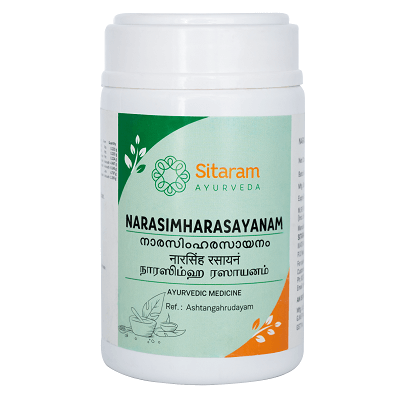
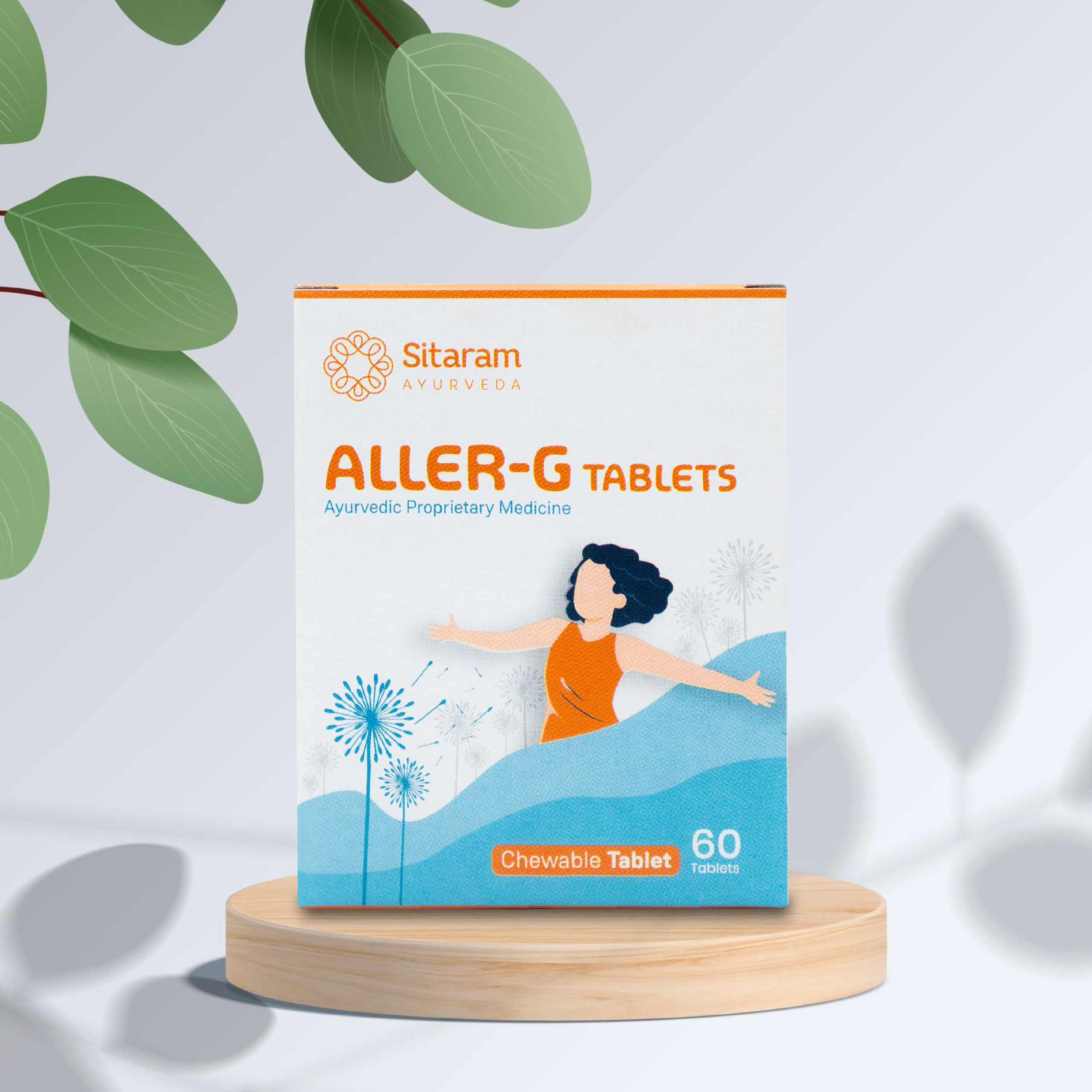
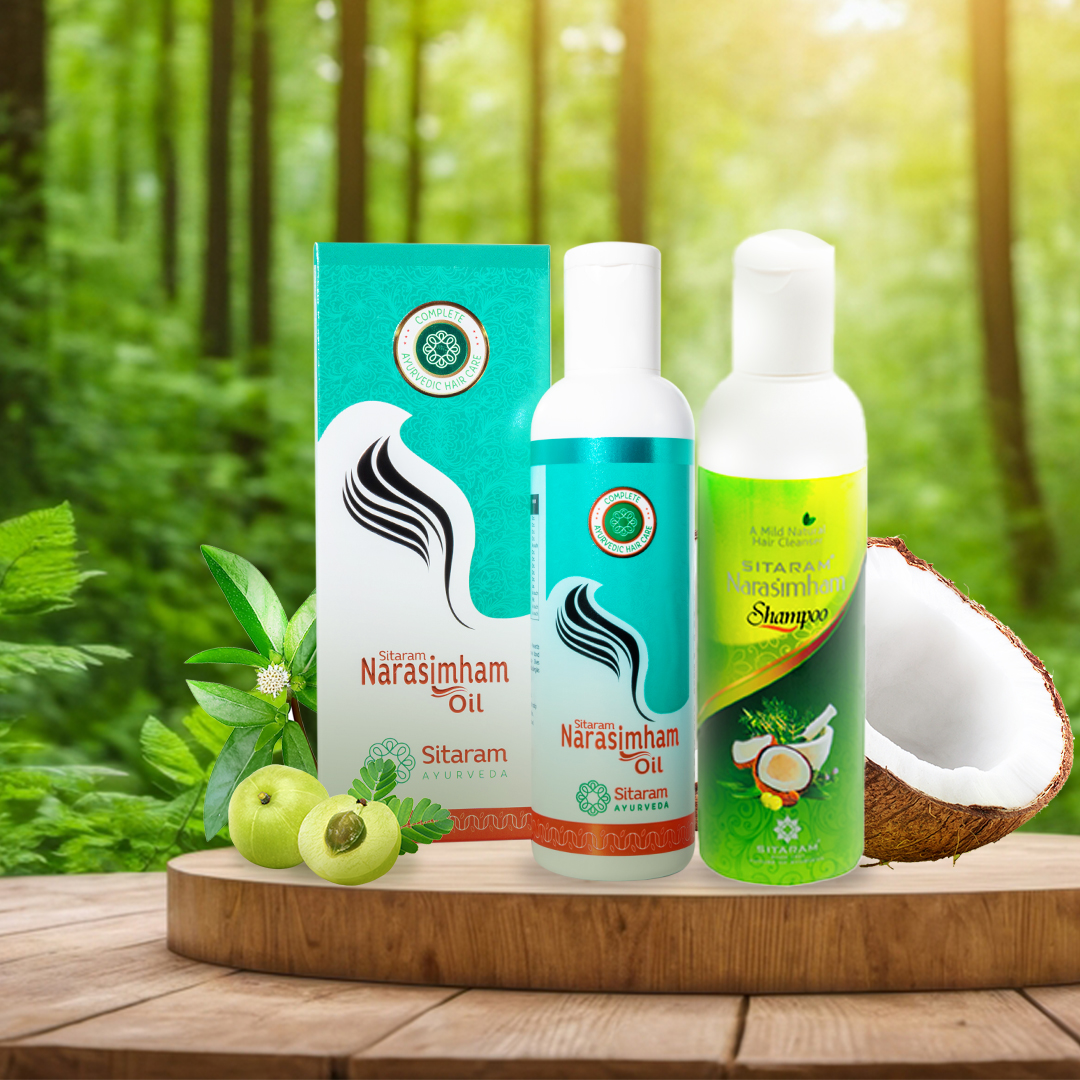
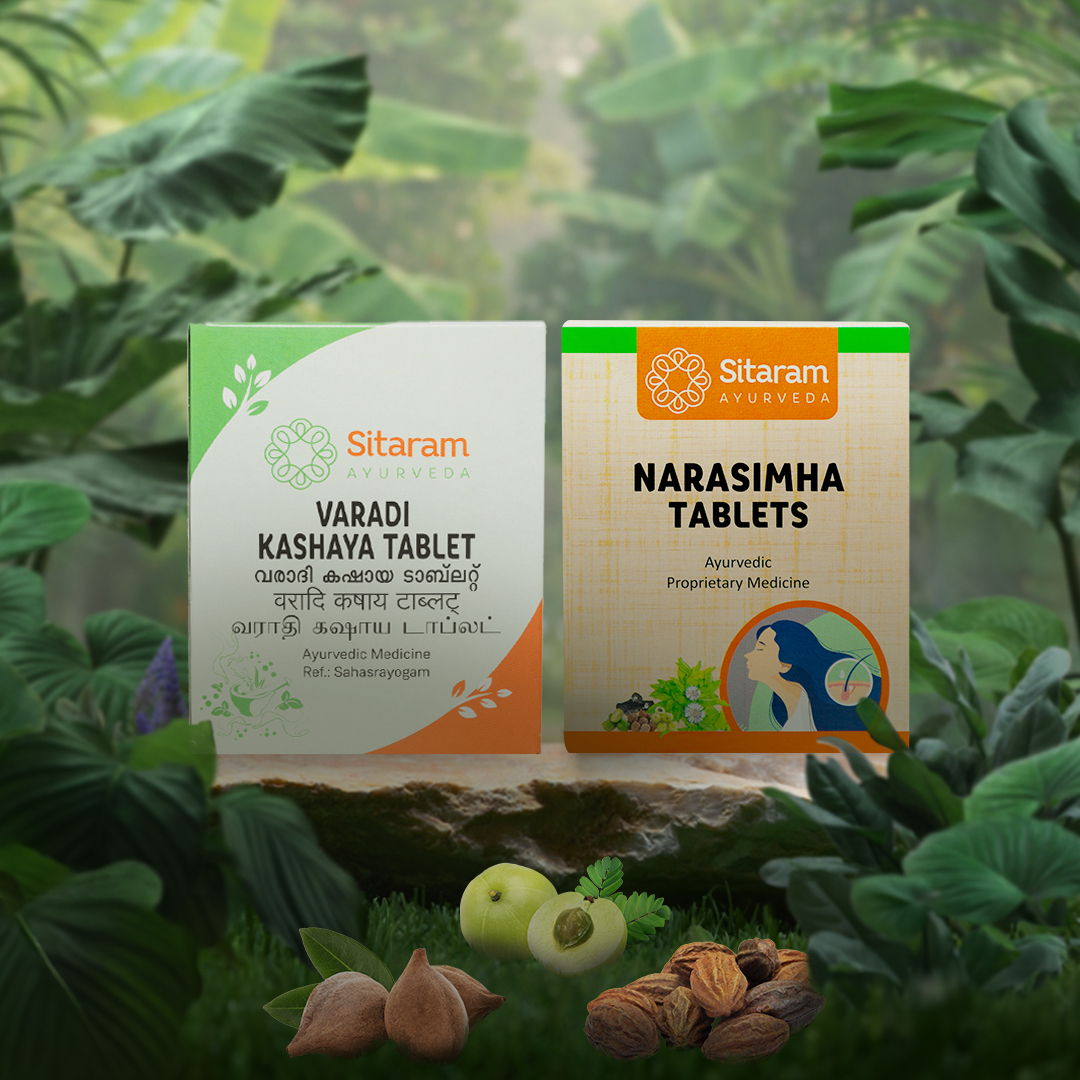
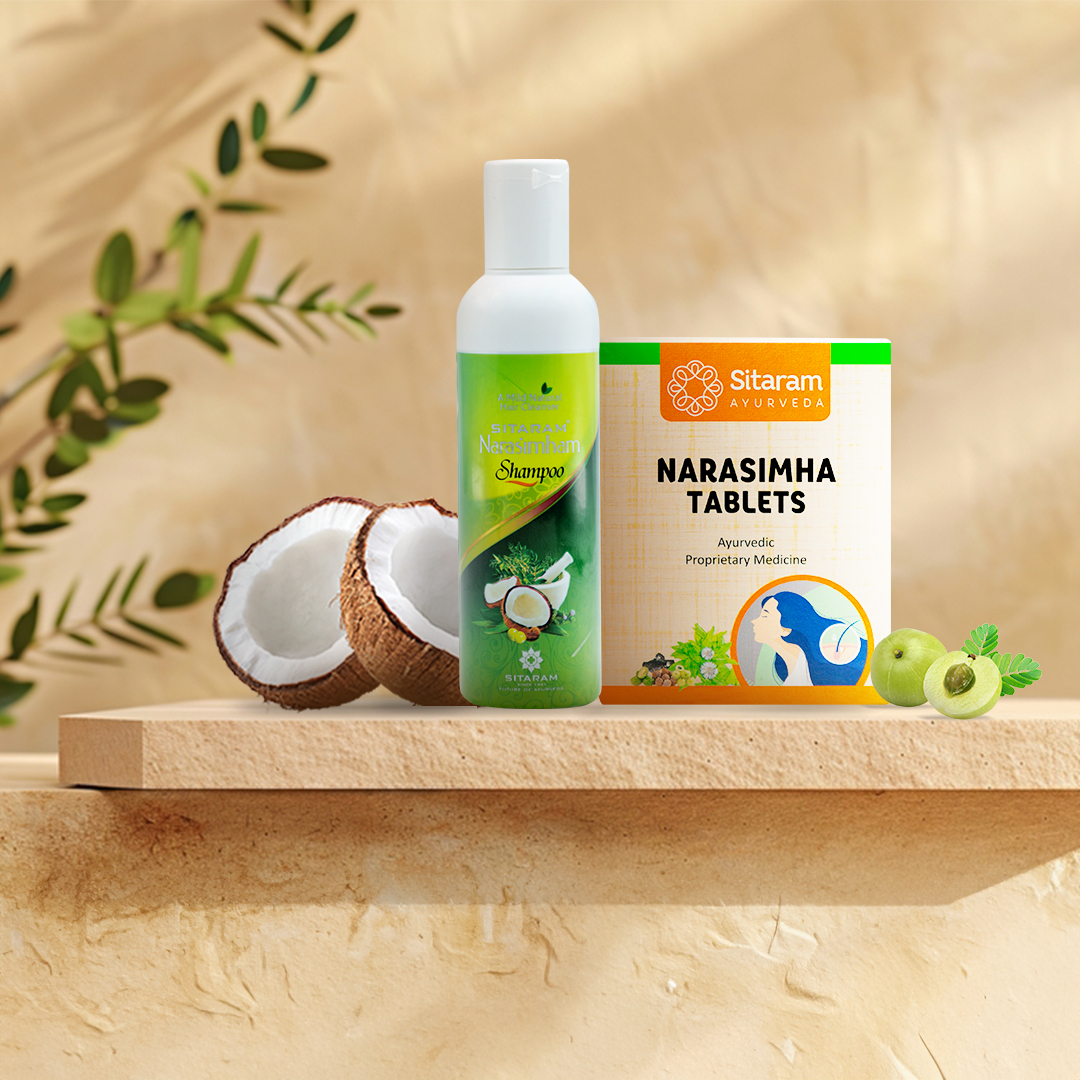
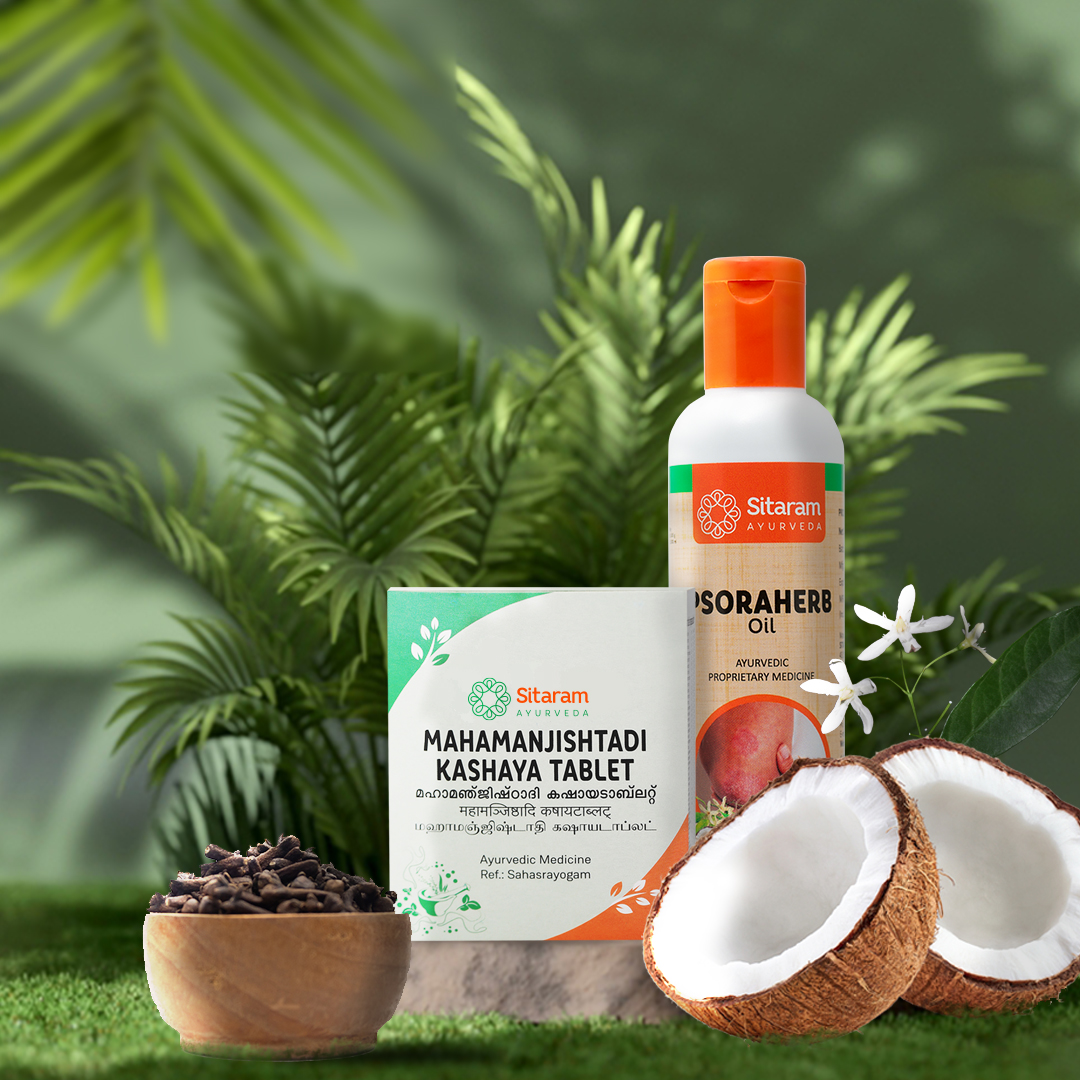
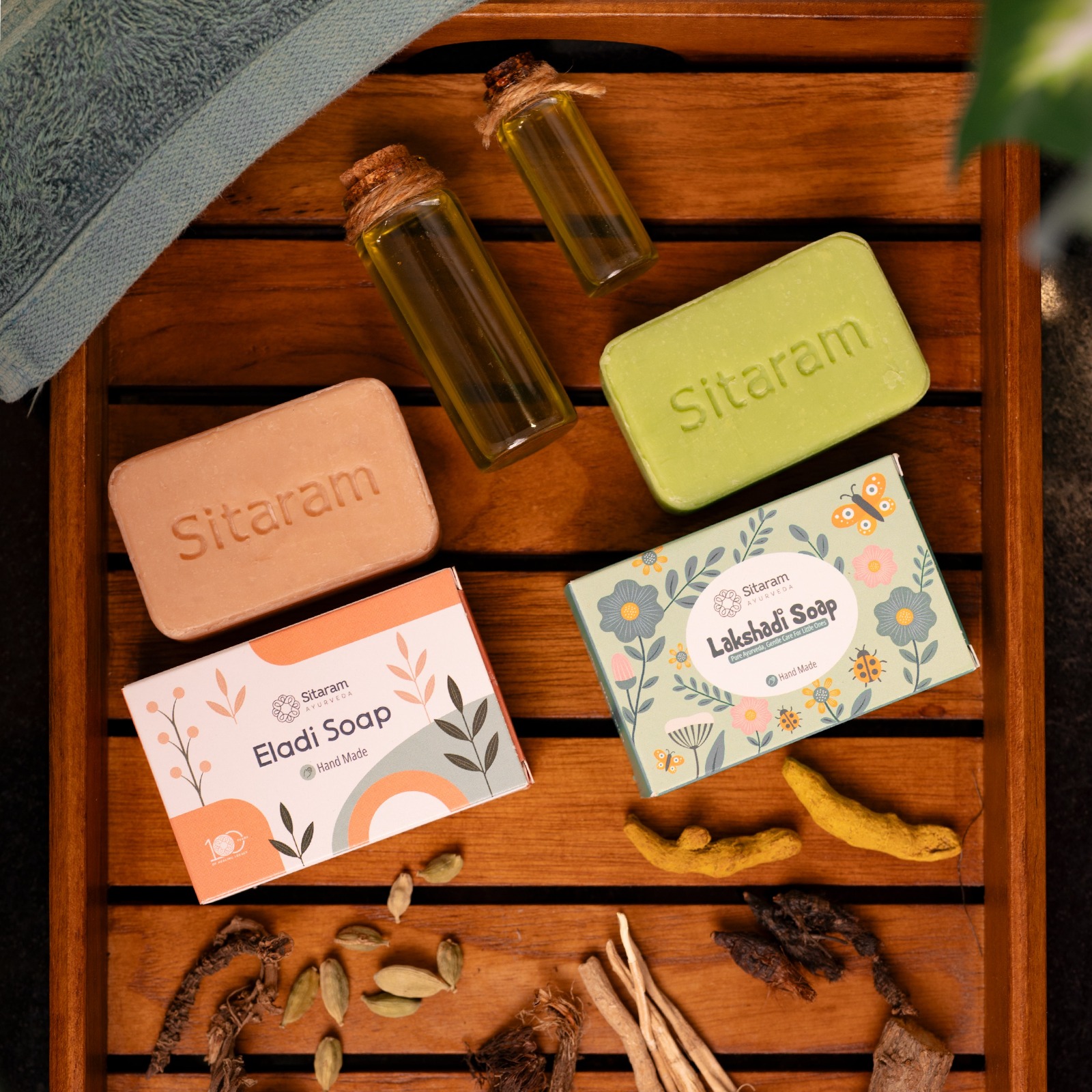
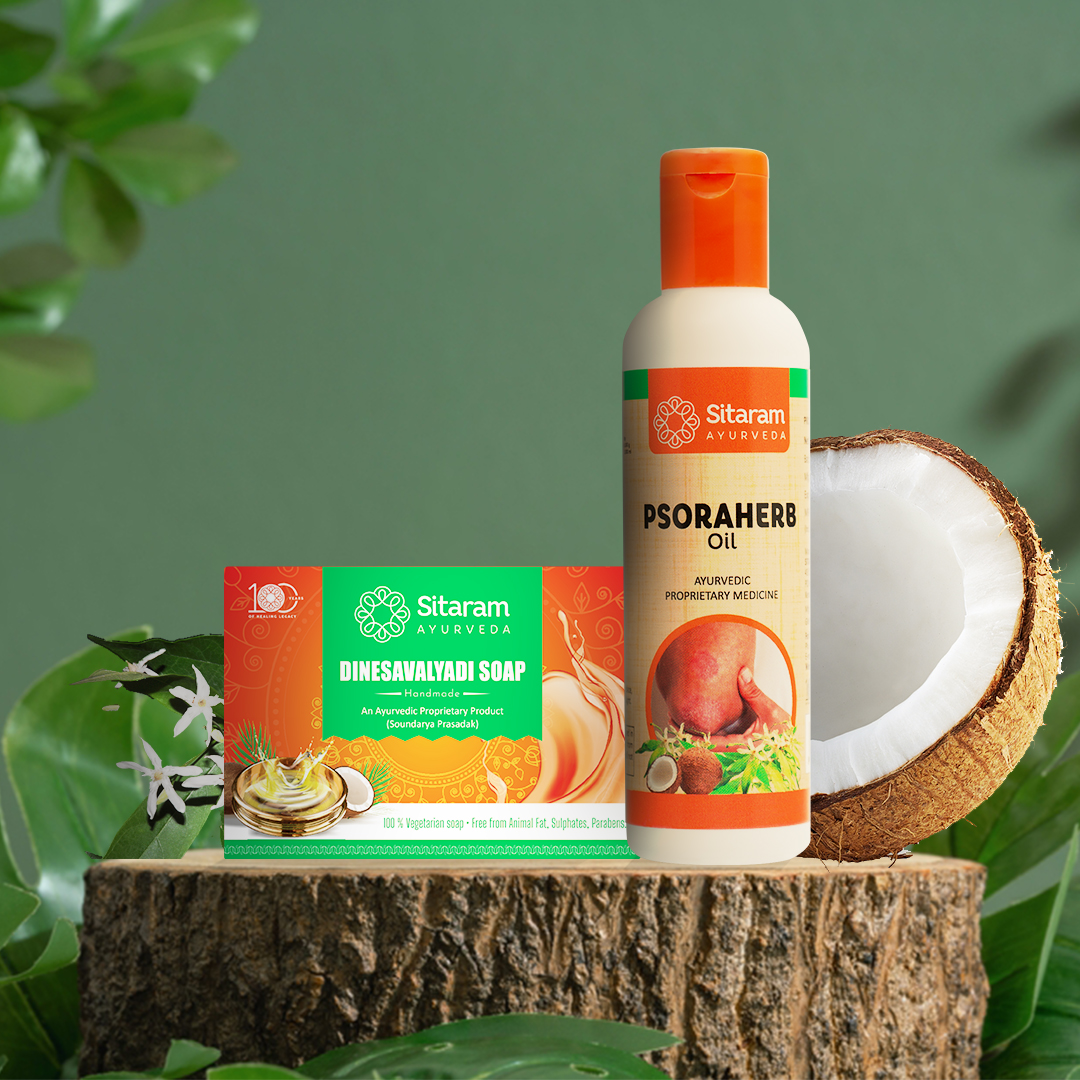
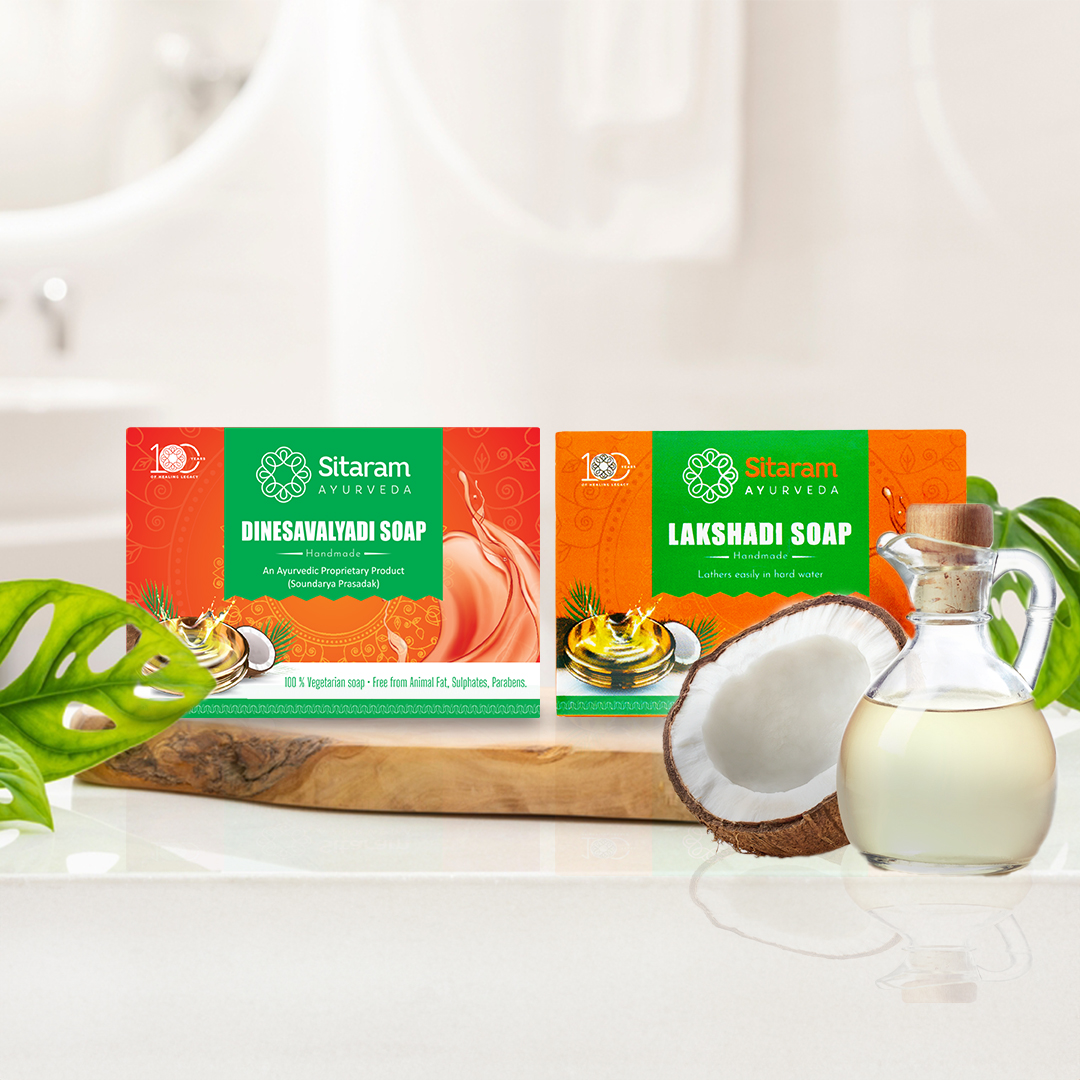
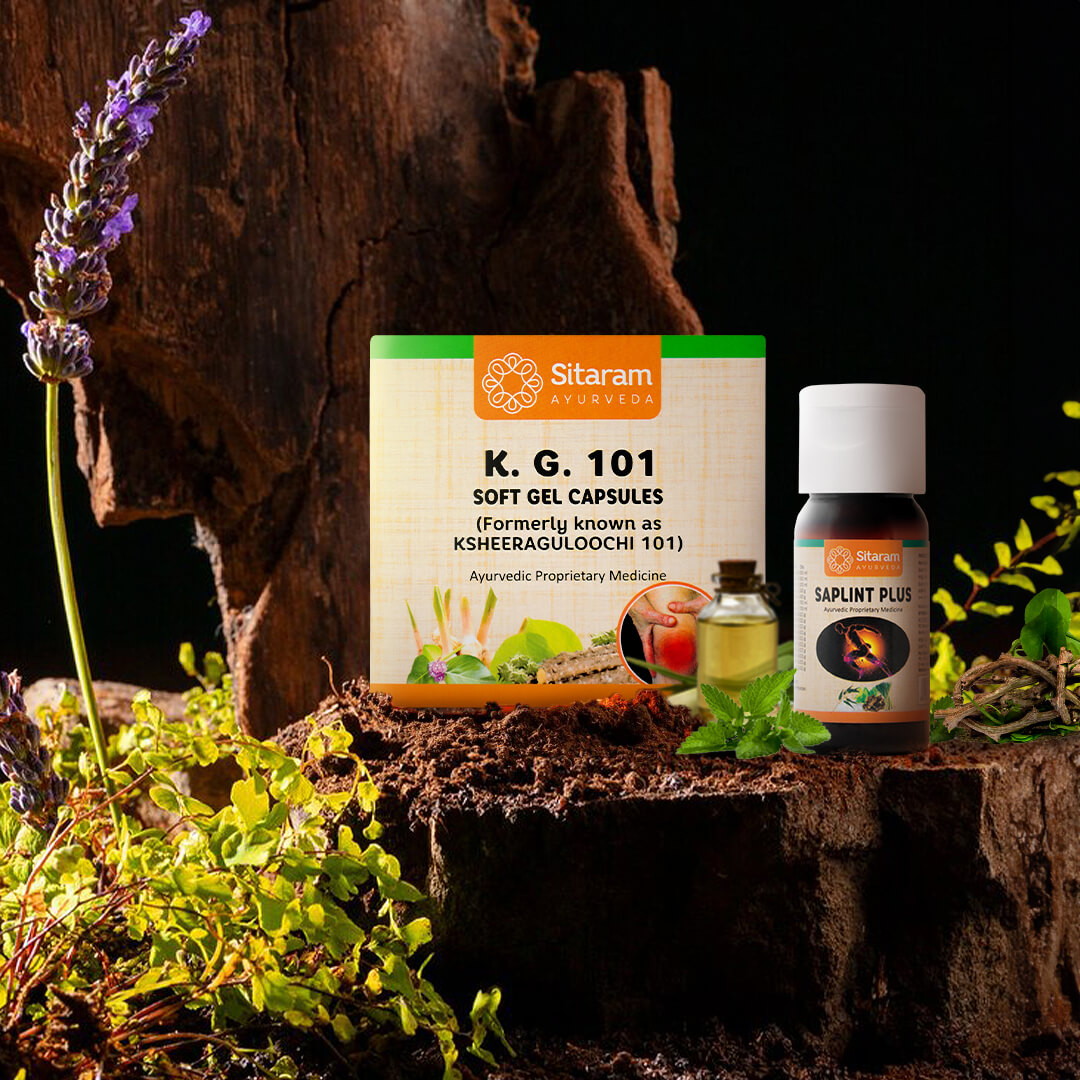
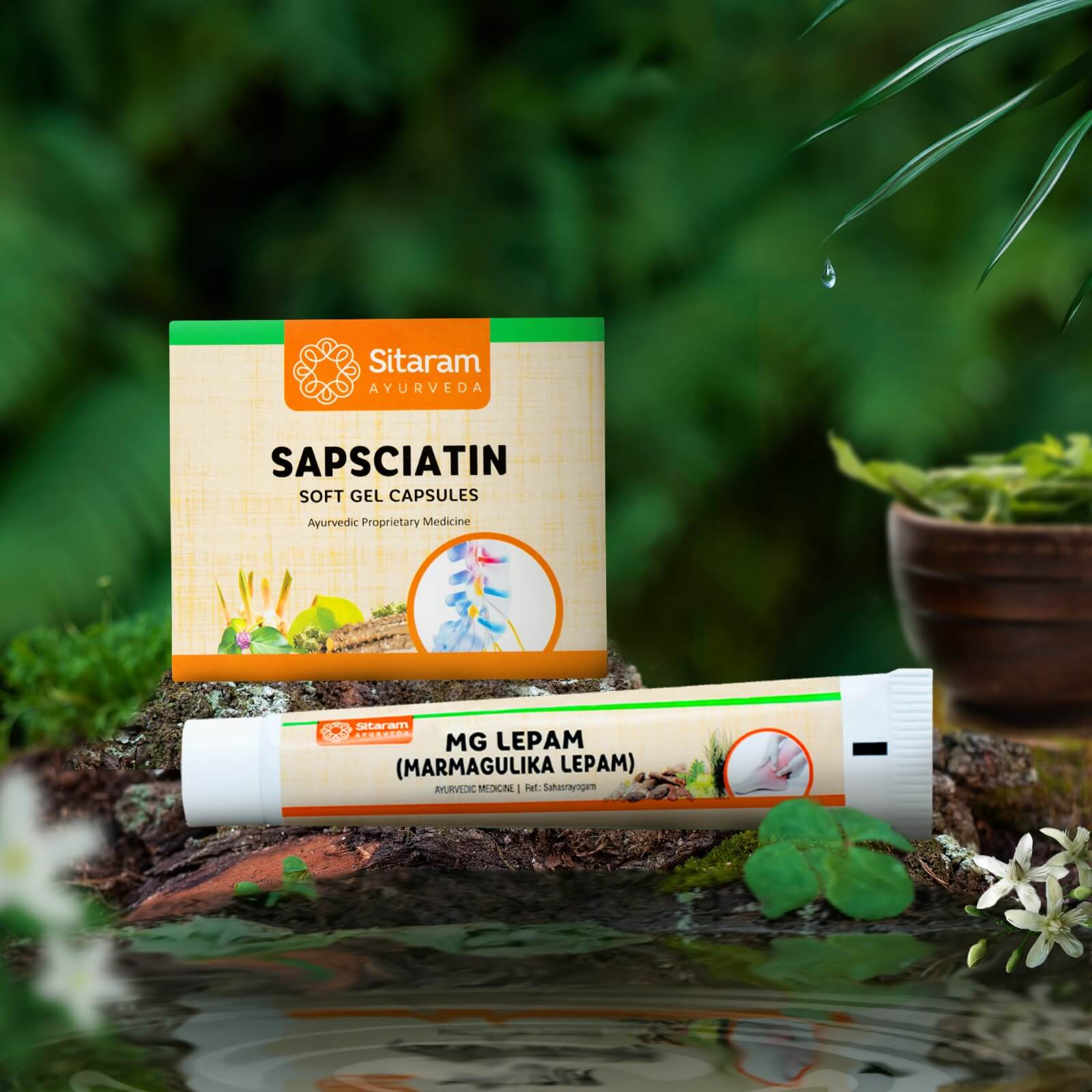
Deepak T L (verified owner) –
ANILKUMAR CHEEROTH (verified owner) –
Excellent product for skin health. It is so sweet. Could you please make the same for diabetic people also?
Sarlka Patwa (verified owner) –
Lalitha (verified owner) –